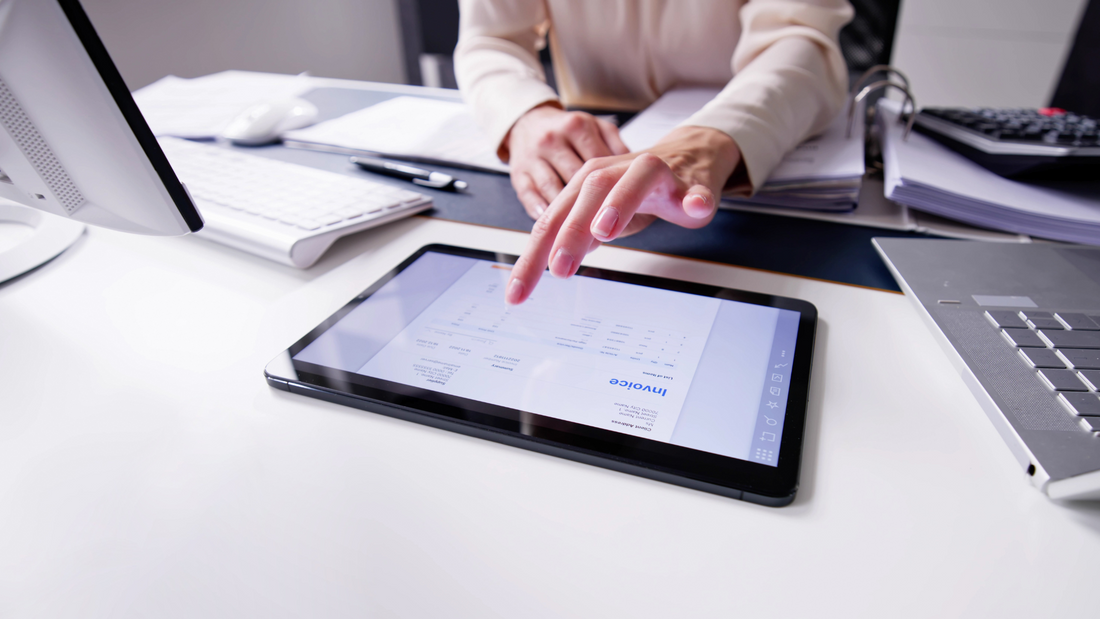
E – Invoicing in Malaysia: A Game – Changer for Businesses
Share
In an era of rapid digital transformation, Malaysia is making significant strides in modernizing its business processes. The government's implementation of electronic invoicing for all enterprises is among the most notable efforts. This action brings Malaysia into line with international standards and is a crucial step in improving the business ecosystem's transparency, effectiveness, and compliance.
What is E-invoicing?
E-invoicing, as defined by the Inland Revenue Board (IRB) of Malaysia, is the process of issuing, sending, and receiving an invoice in a structured electronic format that enables a smooth integration of the invoice into the recipient's accounting system. Meanwhile, an e-Invoice is a digital representation of a transaction between a supplier and a buyer. e-Invoice replaces paper or electronic documents such as invoices, credit notes, and debit notes. An e-invoice collects transaction data for everyday company activities and includes the same vital information as a traditional document, such as the buyer's and supplier's details, item description, quantity, price (excluding tax), and total amount. This standardised format encourages interoperability across many systems and complies with IRB criteria.
The Government’s Push for E-Invoicing
The use of electronic invoicing by the Malaysian government is a component of a larger plan to enhance tax compliance and digitise the economy. The program will be implemented in stages, starting with big businesses and then moving on to small and medium-sized businesses (SMEs). The government wants to enforce e-invoicing in order to:
1. Improve Tax Compliance: Tax evasion and underreporting of income will be decreased by providing real-time invoice reporting to the tax authorities.
2. Increase Operational Efficiency: Businesses save time and money on administrative expenses by using automated invoicing systems.
3. Facilitate Cross-Border Trade: Standardized e-invoicing formats improve compatibility with global trading partners, making international transactions smoother.
4. Promote Digital Adoption: Businesses may embrace larger digital transformation projects by using e-invoicing as a first step.
E-invoicing’s advantages for businesses
The shift to e-invoicing offers numerous advantages for businesses, regardless of their size or industry:
1. Reduce manual efforts and human errors: Unified invoicing process through creation and submission of transaction document and data electronically.
2. Facilitate efficient tax filing: seamless system integration for efficient and accurate tax reporting.
3. Streamline operating efficiency: Enhanced efficiency and significant time and cost savings.
4. Digitalise tax and reporting: aligns financial reporting and processes to be digitalised with industry standards.
Issues with implementation
Although the advantages are obvious, some firms, especially SMEs, may find the switch to e-invoicing difficult. Among these are:
1. Initial Costs: It might be necessary to make an upfront expenditure in staff training and system upgrades.
2. Technology Integration: Companies must make sure e-invoicing technologies work with the accounting software they already use.
3. Management of Change: It might need time and effort to adjust to new procedures and workflows.
Timeline for Malaysia's E-Invoicing Implementation
To ensure a seamless transition for companies, Malaysia is implementing e-invoicing in stages:
1. August 2024: Businesses with yearly sales over RM100 million must adopt this requirement.
2. January 2025: Extension to businesses with an annual turnover exceeding RM25 million.
3. July 2025: Full implementation for all businesses, regardless of turnover size.
This phased approach allows businesses sufficient time to prepare and adapt to the new system while ensuring a structured rollout of e-invoicing nationwide.
An important turning point in Malaysia's transition to a digital economy has been reached with the implementation of e-invoicing. The long-term advantages for companies and the country at large are indisputable, notwithstanding the possible difficulties of the shift. Businesses may improve compliance, expedite processes, and set themselves up for success in an increasingly digital environment by adopting e-invoicing.
Businesses who proactively adjust to these changes as the deployment goes forward will profit from increased productivity as well as help Malaysia realise its goal of being a technologically sophisticated country.
